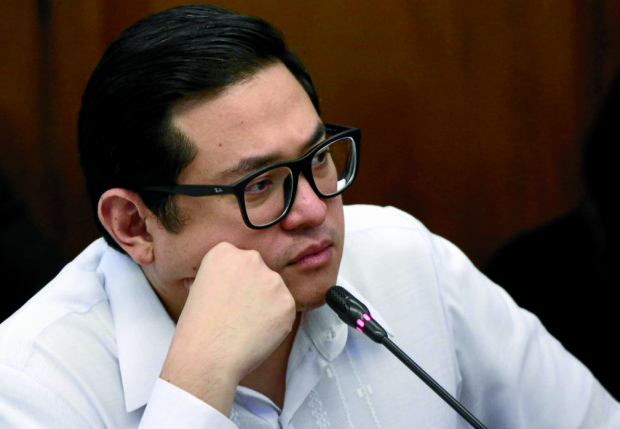Senate panel to review Train Act amid clamor for its suspension
Is it time to halt the TRAIN?
A joint Senate panel will assess on Wednesday the inflationary effects of the Tax Reform for Acceleration and Inclusion (TRAIN) Act and determine whether it’s a good idea to suspend the implementation of some of the increases in excise taxes felt most heavily by the poor.
“We want to know the impact of TRAIN on our people. In my travels to different areas of the country, many of our countrymen are already complaining because of the rising prices,” Sen. Bam Aquino told reporters on Tuesday.
Besides the spike in the price of rice “due to the mismanagement of the NFA (National Food Authority),” Aquino said prices of gasoline and other basic commodities had also skyrocketed.
At the House of Representatives, Magdalo Rep. Gary Alejano has formally sought a congressional inquiry into how the price increases caused by the TRAIN law have affected Filipinos.
Alejano said the review would guide the House in determining if there was a need to suspend the law or to come up with measures that would cushion its impact on the poor.
The TRAIN law exempted from the payment of income tax workers earning up to P250,000 starting Jan. 1, but raised the excise tax on a host of goods and services.
Put on hold
Aquino said the Senate committees on economic affairs and on ways and means would also discuss the possibility of “suspending” the implementation of some TRAIN provisions, including the raising of excise taxes on fuel.
He noted that under the TRAIN law, there would be automatic lifting of the excise tax increase on oil products once a certain level of the global prices of crude oil had been reached.
Thus, he said, new legislation would be needed to suspend the tax law.
Excise tax on fuel
Sen. Sherwin Gatchalian, chair of the economic affairs committee, said it was highly possible that the Senate—and Congress as a whole—would recommend the suspension of the implementation of TRAIN.
“What is important here is we protect our poorest people, especially those living hand-to-mouth,” he told reporters.
“The biggest is the excise tax on fuel, on petroleum products. So if there is suspension that will be No. 1 on the list,” Gatchalian said.
In a statement, Sen. JV Ejercito called on the government’s economic managers to suspend the TRAIN law to “arrest the rising inflation rate.”
Inflation accelerated to 4.5 percent year-on-year in April, the fastest in more than five years. The full-year target is 2 to 4 percent.
“It might be wise to consider the suspension of the TRAIN law if the trend continues to breach the inflation threshold,” Ejercito said.
He said the economic managers should seriously assess the impact of the TRAIN law given the upward trend of the numbers.
“They should assess whether the increase in inflation is still manageable. Otherwise, implementation of TRAIN 1 should be suspended and restudied,” he added.
Benefit canceled
Representatives of the National Economic and Development Authority, Department of Finance, Bangko Sentral ng Pilipinas, Department of Trade and Industry, and Department of Social Welfare and Development have been invited to Wednesday’s Senate hearing.
In House Resolution No. 1838, Alejano said higher prices—blamed on the increase in taxes on fuel and certain consumer goods—would wipe out the benefit of an increased take-home pay that middle class employees expected from a decrease in income taxes.
“The continued increase in inflation would likely lead to decreasing amount of goods and services that an individual would be able to purchase, offsetting the higher take-home pay that the TRAIN law afforded the Filipinos,” the resolution read.
The government has justified the increase in the excise tax on fuel by saying the 10-percent richest families account for 51 percent of total fuel consumption.
But Alejano’s resolution said the government “failed to consider that most Filipinos still rely on mass transport … which will surely be affected by the increase in excise tax.”
He said the government’s statements claiming that additional revenue from the TRAIN law would go to the “Build, Build, Build” infrastructure program was “only a ploy to get public support.” —Reports from DJ Yap and Vince F. Nonato
